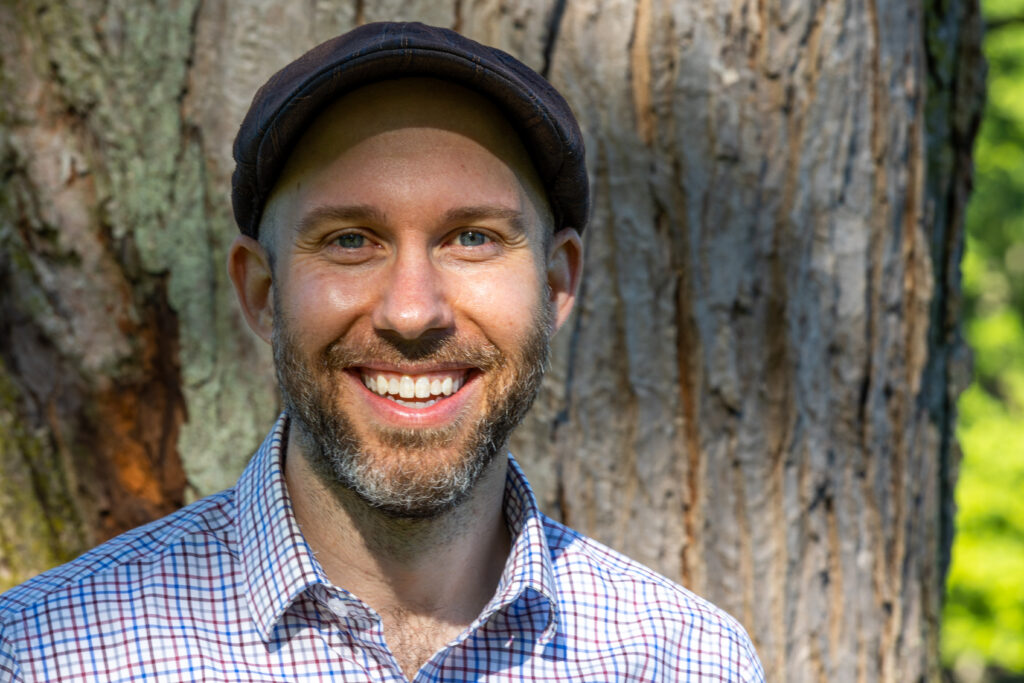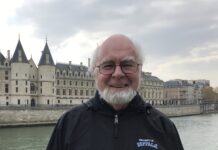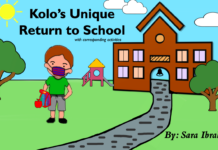Last month’s federal election saw Liberal members of parliament elected in all but one riding in the Waterloo Region, with Green Party MP Mike Morrice elected in Kitchener Centre.
Morrice, along with Bardish Chagger, the Liberal MP for Waterloo, spoke to Imprint about themselves, their ideas and ideals and how they intend to make an impact in Ottawa. Here’s how they responded:
Mike Morrice

Q: What were your immediate thoughts after winning the election? How were you feeling?
A: It was so emotional. When I first learned what had gone on, my dad shared with me that the Canadian press had called it. We were out in Mcmullens, and although CBC hadn’t made it official yet, when my dad told me that the Canadian press had called it, I was overwhelmed; I shared the news with my good friend and co-campaign manager Asha, and there’s actually a picture in the Waterloo Record of when I shared it with her. She was crying, with her hand over her face, in joy. We were elated, exhausted; it was totally surreal.
Q: As you join the House of Commons, what would you like your impact to be on the federal government, parliament, and Canadian society at large? Or in other words, what do you wish to be your legacy?
A: I hesitate around the word ‘legacy’, but in terms of the impact I want to have: I want to bring the voices of my neighbors to Ottawa, and specifically, the priorities they share. The unaffordability of housing, the gaps in health care, including mental health, dental, eye and long term care, and the reality of the climate crisis, to ensure that we have nieces and nephews, kids and grandkids who have a safe climate future. And I want to do it respectfully. I think it’s really important that we have more parliamentarians focused on working together, in place of the hyper partisanship and divisiveness that so many of us are really tired of and concerned about.
Q: What are the biggest issues in Kitchener Centre that can be addressed in Ottawa?
A: One of the main reasons why I ran federally was because I feel as though so many of the biggest challenges we face require much more action from Ottawa. On housing, for example, the federal government used to invest in building co-op housing back in the 80s. That’s the kind of investing that I will be respectfully advocating for. When it comes to the various ways to address the high cost of rental, for example, introducing a vacancy tax, I am open to any policy that helps ensure that homes are for people, ahead of commodities for investors to trade. You’ll see on my blog there are 14 ideas I put forward, but I am open to other ideas, and listening to other MPs for ideas they might have, that would address the unaffordability of housing. On climate, looking at the subsidies — $18 billion to fossil fuels last year alone — we could be re-allocating those subsidies toward retrofitting homes, incentives for electric vehicles, building high speed rail, the investments we need to ensure we follow the science on the climate crisis. Those are just some examples.
Q: How are you planning to represent the interests of Kitchener and solve these issues, especially since the Green Party has only two seats?
A: By working respectfully, and seeing other parliamentarians as potential collaborators, and not as enemies. Rather than spending time scoring political points, instead trying to actually listen and understand their perspectives, and bringing the priorities of my neighbors to them, to seek to make progress. I’ll give you an example: in Guelph, they elected a Green member of provincial parliament in 2018, his name is Mike Schreiner. Mike got legislation through second reading around protecting water, called the Paris Galt Moraine Conservation Act. It seeks to protect groundwater for 800,000 people along the Grand River. He was able to secure unanimous support for the bill in its second reading, and when I asked him how he did it, he shared with me that as one lone Green MPP, by working respectfully, asking questions from a place of curiosity rather than judgment or shame, by trying to actually find common ground, he was able to get that done, and that’s what I’ll be looking to do as the MP for Kitchener Centre.
Q:What are your immediate goals when you get to Ottawa? Or in other words, what is the #1 thing on your agenda?
A: I’ll come back to those three priorities, although I know you asked for just one, but I think they are interconnected. The unaffordability of housing, addressing the gaps in our health care, and science based action on the climate crisis. Of course, there is a longer list – when it comes to addressing the preventable deaths from the opioid epidemic, deep wealth inequality, electoral reform. On all of these priorities, I want to be understanding of where we can find common ground with other parliamentarians. I’m not trying to avoid your question Charlie, I know you asked for just one. If you really want me to pick just one: housing is just so intersectional; if someone is not well housed, they’re not going to be in a place of good mental health. Or, if we keep building housing out in sprawling, then that’s not conducive to solving the climate crisis. So to me, housing is an issue that’s not just a challenge for my neighbors in Kitchener, but for so many across the country, so I’m particularly motivated to make progress in this area.
Q: How can people contact you?
MorriceMike on twitter
In person at events, which you can find on my website
In my MP office, which we are still looking to set up.
Website: MikeMorrice.ca
Bardish Chagger

Q: What were your immediate thoughts after winning the election? How were you feeling?
A: I’m really excited to continue representing the good people in the riding of Waterloo. [I was] really pleased to see the number of people that came out to vote, [and we’re] always pushing to see even more people voting. I love this community, so to be able to represent it is truly an honour and a privilege, and I’m really grateful.
Q: How would you respond to critics who say that this previous election was unnecessary and inappropriate for the Liberal Party to call?
A: This is a conversation that has come up often. I think when it comes to the response of the COVID-19 pandemic, our government under the leadership of Justin Trudeau has taken an approach of ensuring that we were there for Canadians. We have committed to having Canadians’ backs until we are through to the other side of this pandemic. But I really do believe Canadians deserve to have a say, and in this campaign, we saw each of the major parties put out a platform, each with a very different vision for the future, so I thought it was really important that Canadians get to decide how we move forward as a country. To me, I think voting is essential, with rights and freedoms come responsibilities, and the responsibility to vote is one I take very seriously.
Q: What do you think your impact has been so far, both on the Waterloo Region and Canada at large, and how do you wish to continue that going forward?
A: Since I took office in 2015 when I was first elected, I’ve really tried to create an office where Canadians are able to engage with us. Justin Trudeau says that diversity is one of our greatest strengths, and I believe that diversity is more than the shelves we occupy, the diversity of perspectives, experiences, regions, language, gender, the list goes on. It’s all about how we engage with more people of these diverse backgrounds. I think one of the greatest impacts we’ve had as a region is helping to ensure that we advance legislation that works for more canadians. When we committed to putting a price on pollution, it was Canadains, including the citizens climate lobby right here in the Waterloo region, who advocated for the price on pollution to be accompanied by the climate action incentive, to help encourage more Canadians cleaner, greener decisions, and so that they can keep more money in their pockets. On this issue and many others, I would say one of the best things I’ve been able to do is work with more canadians, and that what I want to continue doing, is to make sure that the diversity of experiences and perspectives from right here in Waterloo are better heard, and that includes youth voices, and that’s why I’m really happy that were having this time together.
Q: What are the biggest issues in Waterloo and to the people of Waterloo that can be addressed in Ottawa, as opposed to in local government?
A: I think most Canadians don’t always know whose jurisdiction is whos all the time, but what they do want to see is that different levels of government work better together. I think Waterloo is the only riding in the whole country where the mayor, the MP and MPP are all located in one building, were all at Waterloo city hall, because for us, it is important that we work together to ensure better outcomes for more Canadains. I often say that the natural renewable resource we have in Waterloo is our people, and that includes the students from right here in Waterloo, from across the country, and around the world, who come here for our institutions, and then start businesses, or raise families, and help for us to grow. At the federal level, I think we need to show leadership. One of the areas we have really demonstrated this leadership is with Canada’s student loans. We increased the amount of grants available for students, and when the pandemic hit, we stopped the interest payments on those student loans. When I graduated from the University of Waterloo in 2004, I knew that student loans and unaffordability were a major issue, and that’s why, in the platform we ran on in this election, we made such big commitments in these areas.
Q: How do you plan to continue representing the interests of Waterloo and solve these issues, especially since the Liberal Party has a minority government?
A: We’ve been working with all parties. I think the thing that this campaign and this election has demonstrated is that Canadians do want the liberals to keep governing, and that the opposition has an important role to play, but they need to play that role in opposition. I think that Canadians have demonstrated that they agree with our visions for the future, so what I will do is continue having an open door, having conversations, engaging, and listening to a diversity of perspectives, and that’s where I’ll be available, including on campus.
Q: What are your immediate goals when you get to Ottawa? Or in other words, what is the #1 thing on your agenda?
A: My work, as we’ve demonstrated throughout the pandemic, is able to happen in a hybrid setting, both virtually and in parliament, while still engaging with the public. I want to see us re-introduce legislation to ban conversion therapy. I also know that support for mental health is important, and part of our platform committed to ensuring that there was more access for mental health supports on campus, and across the country. I also want to hear from constituents, so I know clearly what they want. Democracy is the power of the people, and so my job is to represent the voices and citizens in Waterloo.
Q: How can people contact you?
Visit social media, which can be found on my website
Bardish.Chagger@parl.gc.ca
519-746-1573
BardishChaggerMP.ca































